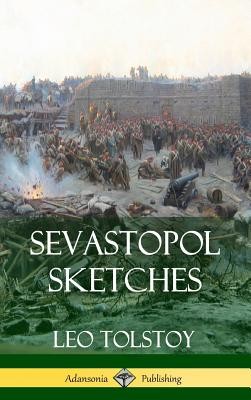
- We will send in 10–14 business days.
- Author: Leo Tolstoy
- Publisher: Lulu.com
- Year: 2018
- Pages: 114
- ISBN-10: 1387940058
- ISBN-13: 9781387940059
- Format: 15.2 x 22.9 x 0.8 cm, hardcover
- Language: English
- SAVE -10% with code: EXTRA
Sevastopol Sketches (Crimean War History) (Hardcover) (e-book) (used book) | bookbook.eu
Reviews
Description
In the Sevastopol Sketches, Leo Tolstoy evocatively recollects his experiences at the Siege of Sevastopol in 1854-1855, over the course of three short stories. Although the trio of tales which comprise the Sevastopol Sketches are ostensibly fictional and written in the second person, they accurately recall Tolstoy's experiences as a young man witnessing the Crimean War. All three possess philosophical overtones, with the overarching theme being a vilification of war as a wasteful, senseless and foolish expenditure of human life. The Sevastopol Sketches establish Tolstoy as a pacifist who considered war to be one of the most depraved and lamentable events characterizing mankind. Years after publishing these sketches, Tolstoy would draw upon the Siege of Sevastopol as a critical supplement to the narrative of his epic novel - War and Peace.
EXTRA 10 % discount with code: EXTRA
The promotion ends in 20d.02:32:41
The discount code is valid when purchasing from 10 €. Discounts do not stack.
- Author: Leo Tolstoy
- Publisher: Lulu.com
- Year: 2018
- Pages: 114
- ISBN-10: 1387940058
- ISBN-13: 9781387940059
- Format: 15.2 x 22.9 x 0.8 cm, hardcover
- Language: English English
In the Sevastopol Sketches, Leo Tolstoy evocatively recollects his experiences at the Siege of Sevastopol in 1854-1855, over the course of three short stories. Although the trio of tales which comprise the Sevastopol Sketches are ostensibly fictional and written in the second person, they accurately recall Tolstoy's experiences as a young man witnessing the Crimean War. All three possess philosophical overtones, with the overarching theme being a vilification of war as a wasteful, senseless and foolish expenditure of human life. The Sevastopol Sketches establish Tolstoy as a pacifist who considered war to be one of the most depraved and lamentable events characterizing mankind. Years after publishing these sketches, Tolstoy would draw upon the Siege of Sevastopol as a critical supplement to the narrative of his epic novel - War and Peace.


Reviews